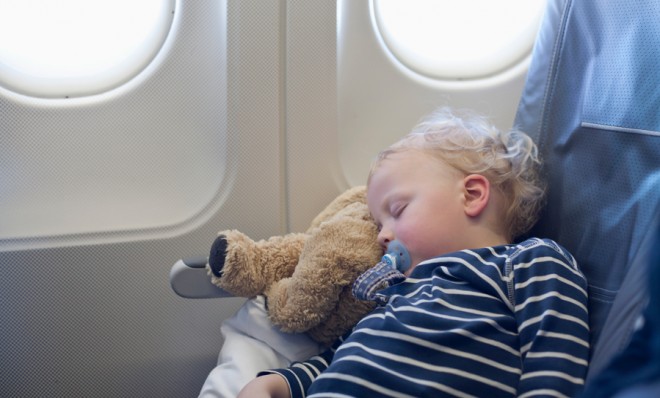Are 'flying nannies' the secret to peaceful air travel?
An airline in the United Arab Emirates now offers child-care in the skies


A free daily email with the biggest news stories of the day – and the best features from TheWeek.com
You are now subscribed
Your newsletter sign-up was successful
It is a nightmare shared by travelers the world over: You settle in for a long flight, shut your eyes, and the toddler in the seat behind you erupts in screams. Or worse, your own inconsolable kid is the one making you and everyone around you miserable.
"Well," says Rory Jones at The Wall Street Journal, "have no fear, because help is at hand."
Etihad Airways, the national carrier of the United Arab Emirates, began putting "Flying Nannies" on its long-haul flights this week, promising to make traveling easier for frazzled families and everyone hoping for serenity in the skies.
The Week
Escape your echo chamber. Get the facts behind the news, plus analysis from multiple perspectives.

Sign up for The Week's Free Newsletters
From our morning news briefing to a weekly Good News Newsletter, get the best of The Week delivered directly to your inbox.
From our morning news briefing to a weekly Good News Newsletter, get the best of The Week delivered directly to your inbox.
The airline insists it is not a gimmick. It says it sent 300 employees — all of them women — to study child psychology and development at England's prestigious nanny-training school, Norland College, and plans to send another 200 through the training by the end of the year.
The nannies will wear orange aprons, making them easy to spot. They will offer kid-friendly meals — and serve them before the adult fare, to keep hungry young travelers from getting cranky.
They will also entertain children with everything from sticker kits to origami projects to magic shows.
It sounds nice, but how much of a difference will this really make? Elliot Hannon at Slate cautions grown-ups not to expect a huge improvement. "While it certainly can't hurt to have a steward that doubles as a magician, some of the ideas seem like, well, a bit of a stretch," he says.
A free daily email with the biggest news stories of the day – and the best features from TheWeek.com
For one thing, Hannon says, the airline actually says one of the Flying Nannies' tricks will be folding paper cups into hats, which has limited crowd appeal. Plus, it says the activities are designed to allow the Flying Nanny to start, then leave the children to finish up on their own. "In other words," Hannon says, "back to you mom and dad! Don't get too comfortable."
Still, Etihad should get high marks for creativity. The Flying Nanny program is just the latest in a series of new, over-the-top amenities that state-owned airlines in oil-rich Persian Gulf countries are using to woo passengers. Emirates Airline has installed two in-flight showers in first class cabin on its Airbus A380, for example.
And sorry, U.S. travelers: Airline industry experts say cost-cutting American carriers won't be quick to offer such expensive new services.
There is still hope, though. Several Asian airlines have come up with another way to offer quiet: Setting aside zones or entire flights that are child-free. Even if you never find an adults-only flight, and never encounter a "mile-high Mary Poppins," there is always the old-fashioned solution, says Carrie Seim at Fodor's: "Earplugs and a martini."
Harold Maass is a contributing editor at The Week. He has been writing for The Week since the 2001 debut of the U.S. print edition and served as editor of TheWeek.com when it launched in 2008. Harold started his career as a newspaper reporter in South Florida and Haiti. He has previously worked for a variety of news outlets, including The Miami Herald, ABC News and Fox News, and for several years wrote a daily roundup of financial news for The Week and Yahoo Finance.
-
 Political cartoons for February 15
Political cartoons for February 15Cartoons Sunday's political cartoons include political ventriloquism, Europe in the middle, and more
-
 The broken water companies failing England and Wales
The broken water companies failing England and WalesExplainer With rising bills, deteriorating river health and a lack of investment, regulators face an uphill battle to stabilise the industry
-
 A thrilling foodie city in northern Japan
A thrilling foodie city in northern JapanThe Week Recommends The food scene here is ‘unspoilt’ and ‘fun’
